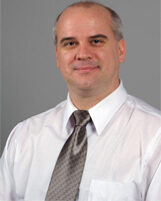RESPONSIBILITIES OF THE CANDIDATE : The objective of this PhD work is to develop new architectures of software simulation and real-time implementation of a GNSS signal simulator uses as a hybrid GPS/Galileo satellite constellation system. His work will be supported by the other members of the research team and will partly rely on the research work performed by the Master and intern students in order to achieve his goals. He will work closely with the postdoctoral researcher and few publications will be generated conjointly. The main goals of the PhD work are as follows: – During the first year, the PhD student will focus on the development, analysis and validation of the GPS and Galileo satellite constellation as well as on the IF GPS and Galileo signal generation. He will work also very closely with the research professional on a preliminary development of the RF channel, as well as on the hardware implementation of the simulated RF channel. RF test and analysis will be an important part of his work during this period. He will make a detailed evaluation of the obtained performances and he will compare the results obtained in simulation with those obtained on the RF board. This work will include, of course, a very strong theoretical background about the RF hardware implementation. – The second year will be dedicated to RF implementation of the GNSS signal simulator. The PhD student will be involved in the improvement of the RF implementation already done during the first year. He will work with the research professional on the design, simulation and analysis of the RF components and will test and validate exhaustively the RF designed board. The last part of the year will be dedicated to parameters analysis and adjustments. – The third year will be dedicated to the development of the perturbation model in simulation and the real time implementation of it. An important part of the PhD student work will consist in testing and validating different satellite failure models, satellite clock oscillator models, atmospheric perturbation models (tropospheric, ionospheric) and multipath models. He will thoroughly analyze the performances obtained and will compare the results obtained in simulation with those obtained on the RF board. – During the fourth year, the PhD student will work on the SBAS development and on the interference generator. He will start his work with an exhaustive overview of the SBAS simulator and interference generator requirements. He will work closely with a Master student on the generation of the SBAS navigation message and SBAS signal in simulation. The next step will be the SBAS signal generator analysis and validation. He will also collaborate with the research professional on the SBAS real-time implementation, tests and validation. The PhD student will reach all these goals with the support of the other members of the team. He will centralize the research works conducted by the interns and Master’s students. The PhD student’s work will be supervised by the professor conducting the project and by the postdoctoral researcher. He will be guided during all his work by the postdoctoral researcher, who will closely follow the progress of his research.
![]()
